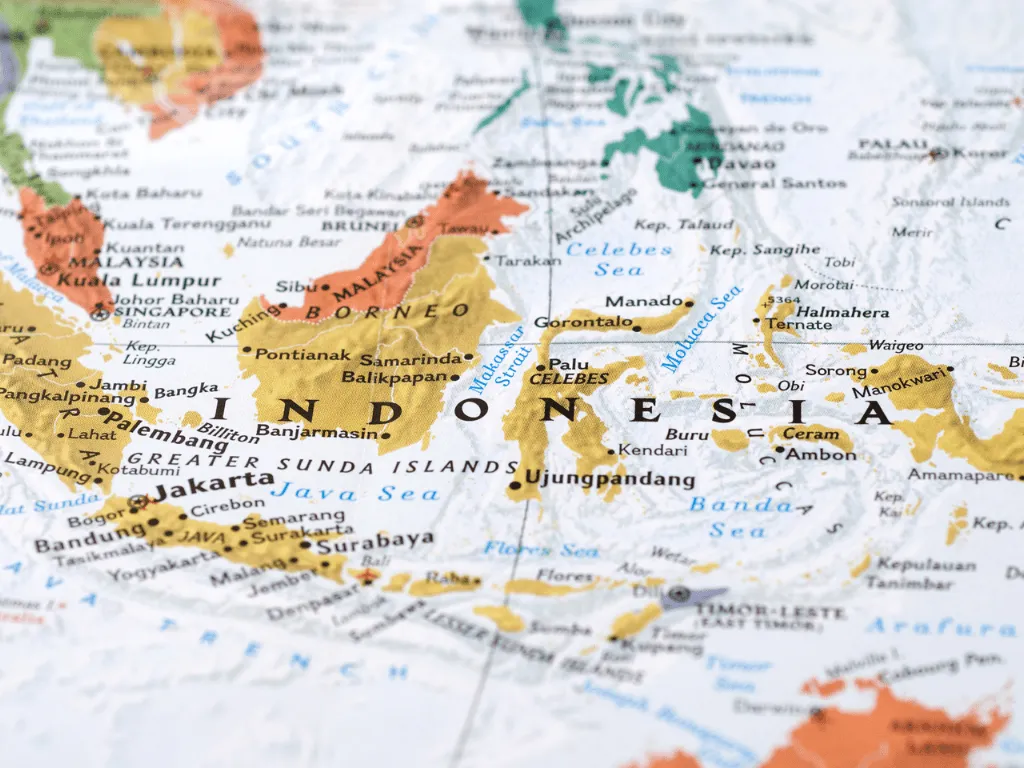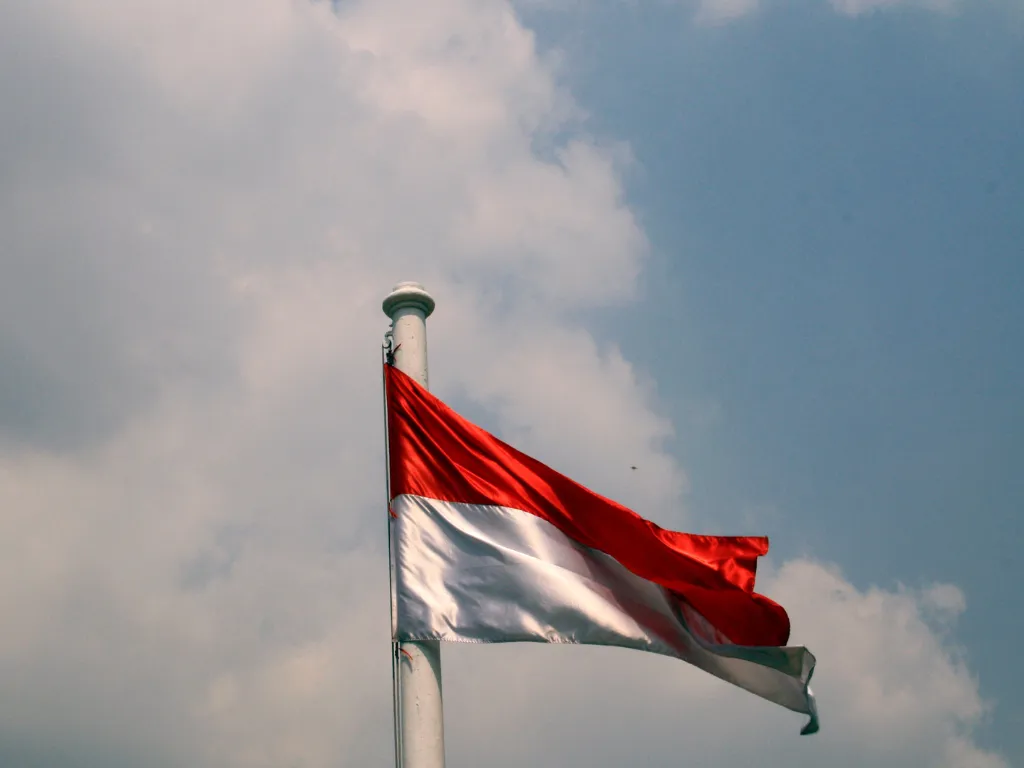- Home
- GPC Indonesia
Indonesia - Home
Login
Forget Password
In Indonesia the so-called negative list approach is employed for chemicals control. Hazardous and toxic chemicals are regulated by making lists of specified hazardous chemicals to be controlled. Indonesia does not have a risk-based chemical control approach to regulated chemicals based on assessment results of their hazards and exposure as is employed in for example EU-REACH. However, the Indonesia government is working to improve the current method of chemical control. Indonesian government published the Chemical Substance Bill that aims to regulate from import/export, production, transportation, usage to disposal in 2012. As of 2018 the Bill has not been promulgated but is still under consideration.
News

Indonesia Finalizes Registration Rules for Overseas Halal Certificates (SHLN)
Oct-23-2025
Indonesia's Halal Product Assurance Organizing Agency (BPJPH) has issued Decree No. 221/2025, setting out definitive procedures for registering overseas halal certificates (SHLN) so products certified abroad can be marketed domestically under the Halal Product Assurance Law framework.
The decree replaces BPJPH Decree No. 90/2023 and takes effect 15 December 2025. A parallel WTO/TBT addendum on 22 October 2025 confirms adoption, publication, and the entry-into-force timeline, and points to BPJPH’s public guidance.
Key Changes
Under the new decree, halal certificates issued by foreign halal certification bodies (LHLN) that has a mutual recognition arrangement (MRA) with the BPJPH do not require re-certification in Indonesia. However, registration with the BPJPH remains mandatory before products can be placed on the Indonesian market. The decree converts prior practice into a single, binding procedure introducing clearer digital workflows, document standards, and change-management rules.
Registration Procedure
Applications are submitted electronically via the SIHALAL system by an importer or an official representative in Indonesia. Each registration must be completed before products are placed on the market and is filed per product category.
Required documents include:
- Application letter
- Authorization letter from the foreign company appointing the applicant
- NIB (Indonesian Business Identification Number)
- Copy of the overseas halal certificate (SHLN)
- List of goods with HS codes
- Warehouse details (name, address, ownership)
- Signed statement of truth
If documents are not in English, include an English translation.
If a product name differs between the foreign certificate and Indonesian use, applicants must submit either an updated SHLN or a declaration from the LHLN using BPJPH’s Annex III template to confirm the equivalence.
Renewals and changes
Registrations can be renewed from 60 days before the registration’s expiry until the expiry date. Temporary proof that renewal is in process may be used, subject to providing the updated SHLN within the required timeframe.
The decree distinguishes between:
- Changes that only require reporting (e.g., importer name/address with the same NIB, contact-person updates, HS-code corrections), and
- Changes that require a new registration (e.g., new NIB, change of LHLN, facility relocation).
A decision table in Annex II clarifies the correct path for each scenario.
Validity, labeling, and enforcement
The registration number remains valid for the same period as the foreign halal certificate. If the MRA or accreditation that underpins recognition expires, BPJPH may deactivate the registration number until recognition is restored.
After registration, importers or official representatives must apply the halal label together with the SHLN registration number in line with Indonesian labeling rules and promptly report any data changes to BPJPH.
Administrative sanctions for non-compliance may include written warnings, administrative fines, deregistration, and/or product withdrawal.

Indonesia Concludes Public Consultation on New CPKB Certification Rule: Risk-Based Oversight, Faster Timelines, Clearer Renewal Paths
Oct-02-2025
The Indonesian Food and Drug Authority (Badan Pengawas Obat dan Makanan, BPOM) has held a public consultation on the Draft Regulation on Certification of Good Manufacturing Practices for Cosmetics (CPKB), as part of ongoing efforts to modernize and strengthen regulatory oversight of the cosmetics sector. Stakeholders were invited to submit written comments until 26 September 2025.
The draft regulation seeks to replace BPOM Regulation No. 33/2021, introducing a risk-based supervision system, streamlining certification procedures, and codifying service-level timelines for verification, inspections, and decisions.
What the Draft Changes
Two certification tracks.
- CPKB
Certificate - Required for manufacturers (including contract
manufacturers), issued per dosage form, and valid for five years.
- Certificate
of Compliance with CPKB Aspects - Intended for non-contract manufacturers, offered
as Gradual Type A (covering 10 quality-system aspects) or Type B (covering baseline aspects). This certificate may cover multiple dosage forms and is also valid for five years.
Applications must be submitted online. BPOM will verify documentation
within seven working days. Following payment, inspections are coordinated within
20 days, and decisions are issued within 35 days for cases that do not require
inspection. The process follows a “clock on/off” principle, allowing up to
three data-request cycles of 20 days each.
Administrative changes, such as name or address change without
relocation, can be approved without inspection. Certain technical changes and
renewals may trigger inspection depending on risk level and recent oversight
history. Late renewals must re-apply as new.
Existing CPKB or Aspect certificates and joint-use approvals
remain valid until their expiry date. Floor-plan pre-approvals submitted before
the new rule takes effect will be processed under Regulation 33/2021,
signalling the elimination of this requirement in the new framework. Upon entry
into force, Regulation 33/2021 will be repealed.
Why It Matters for Industry
- Predictable timelines via codified milestones of seven-, twenty-, and thirty-five-days reduce uncertainty and idle time during processing.
- Scalable pathways for SMEs through Aspect-Compliance options (Type A/B) provide staged on-ramps toward full CPKB.
- Risk-based
renewals/changes target inspections where they add value, limiting
disruption for compliant sites.
- Integrated
operations enabled by formalized joint-use approvals across cosmetics,
Obat Kuasi, and PKRT.
What Companies Should Do Next
- Map
your certification path (full CPKB vs Aspect Compliance A/B) and confirm
dosage forms requiring certification.
- Align
dossiers and QMS with the draft’s annexed checklists; prepare for
electronic submissions and clock on/off interactions.
- Plan
for renewals and changes using risk triggers to avoid unnecessary
inspections and downtime.
- Evaluate
joint-use feasibility (Obat Kuasi/PKRT) and assemble validation evidence
if pursuing shared lines.
Context and Next Steps
Grounded in Government Regulation No. 28/2024 under the 2023
Health Law, the draft modernizes CPKB governance by emphasizing risk
management, digital administration, and enforceable service levels. With
consultation closed, stakeholders should monitor BPOM for the consolidated
final text and effective date.
Login
Forget Password
Global Product Compliance (GPC) specializes in Global Regulatory Compliance Solutions across sectors
globally. SSS Europe, a familiar name in chemical regulatory and compliance services now formally belongs
under the umbrella of GPC Holding Sweden.
Since 2008, we have emerged as one of the leading names among Global Regulatory Compliance Service
Providers with Representation services in Europe, Asia and Middle East for respective chemical
regulations.

 Twitter
Twitter
